“His host family called him the day after he got home. At first I couldn’t imagine why they would do that. Then it occurred to me that they were also now family. They miss him, too. It made me wish I knew them. It made me cry. I read somewhere, and always agreed, that a child can never have too many people who love them.”
–Jean, Parent
AMIGOS has been working with host families for nearly 60 years and we know this exchange model is powerful and successful.
The host family is a cornerstone of the AMIGOS experience. Since 1965, thousands of volunteers have lived with host families in communities across Latin America, and it has been the highlight of the summer for generations of volunteers. Living with a host family is the best way to immerse yourself in a new culture, language, and community. Volunteers living with host families vastly improve their Spanish, build lifelong relationships, and find a sense of community away from home. Additionally, living with a host family affords volunteers increased independence and opportunities to engage in unique activities, from milking the cows each morning to lending a hand on the family farm. Our host families are passionate about the mission of AMIGOS, and it is not uncommon for host siblings to one day become AMIGOS volunteers themselves.
Living with a host family gives young people the opportunity to find out what it’s like to be cared for and even loved by people they didn’t even know before their AMIGOS program began. Volunteers learn they can be safe, valued, and cared for in the greater world outside their homes.
Furthermore, homestays are more respectful to host communities. Engaging with a large group can be difficult for anyone, but getting to know individual volunteers one-on-one provides more opportunities for people to really get to know each other and for volunteers to find a sense of belonging in their community.
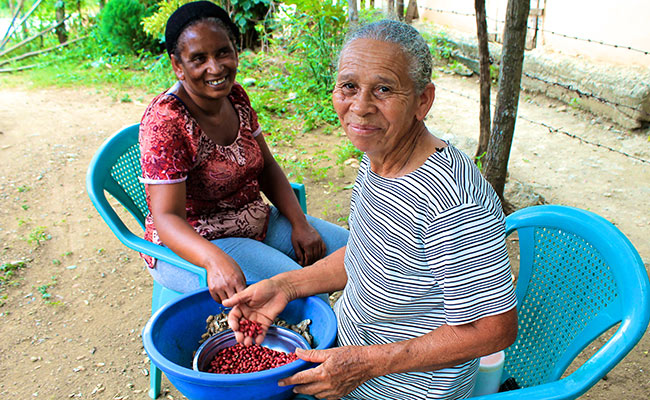
AMIGOS host families are households identified in AMIGOS communities who have an interest in hosting a volunteer for a period of one to six weeks, depending on the project. Many families host AMIGOS volunteers year after year and love the opportunity to get to know and care for a new volunteer each summer. Other host families may be new to AMIGOS, but all share the same excitement and love of cultural exchange.
See Gideon, a volunteer in Santa Elena, Ecuador in 2022, and his host mom Sara talk about their experience:
Finding a host family for students is an important part of AMIGOS programs. Since we have long histories working in many of our host communities, lots of AMIGOS host families have hosted students before. New families may find out about the opportunity to host AMIGOS volunteers because another family recommended the experience to them. Others may be involved with our local partner organizations and find out about AMIGOS through their work with them. In any case, they are people who show interest in sharing their lives and their culture with a student.
Because we work with young people, properly vetting host families is crucial. Our staff teams conduct interviews with interested families and visit their homes to ensure the situation is suitable and that the family is a good match. Then, once host families are selected, our staff and local partner agency put on a training to make sure they are prepared to welcome a young person into their home. During the project itself, AMIGOS staff members have regular check-ins with volunteers and families to address any issues that arise and make sure they all feel safe and well cared for.
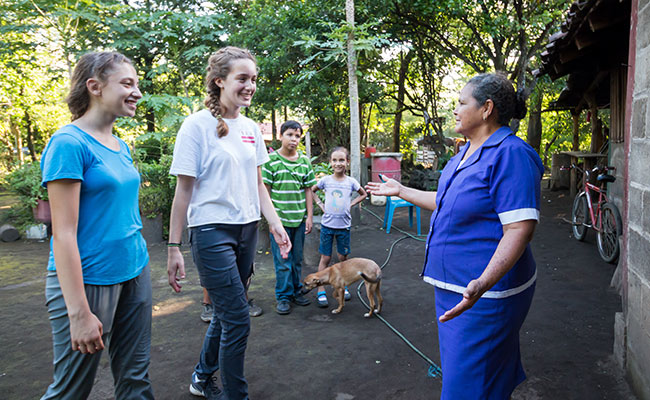
Any family that will host a volunteer must meet certain criteria. These include:
Before volunteers arrive, project staff work closely with AMIGOS partner agencies and community leaders to select host families. A member of the senior staff team visits each host community to vet potential host families, normally accompanied by a trusted local or partner agency contact. Then, the project supervisor working in the community will visit the community again, sign host family contracts with each household, affirm that the host family meets AMIGOS criteria, and spend the night in one of the host homes.
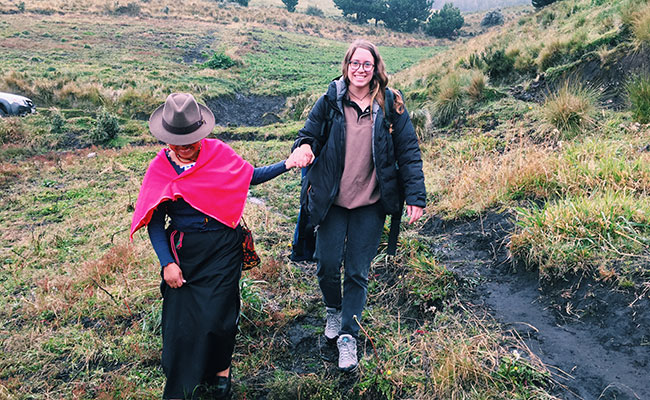
Before volunteers arrive, at least one member from each host family must attend an AMIGOS-led Host Family Training. Here, project staff set expectations, review AMIGOS health and safety policies, teach host families what to do in case something goes wrong (such as an illness), and share best practices for cultural exchange.
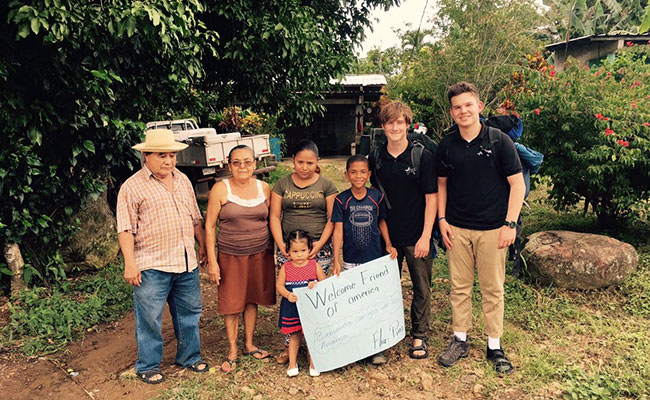
Each volunteer is provided with a personalized emergency contact plan that they can use should any incident arise during their time in the host community. AMIGOS project staff are on-call 24/7 to respond to incidents or concerns. Should a concern arise, project staff will respond quickly to address it. Depending on the nature of the situation, possible responses include speaking with the host family to resolve the issue, re-assigning the volunteer to a new host family, or re-assigning the volunteer to a new host community. Historically, the rate of serious incidents related to the volunteer’s host family is extremely low.
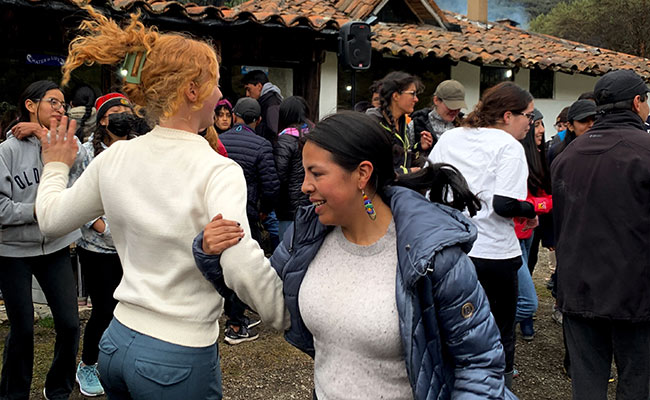
No one knows the local community, culture, and climate quite like a host family. Host families are our eyes and ears on the ground and are a great way to help identify and mitigate risks. AMIGOS host families act much like families anywhere in the world, imposing curfews, implementing household rules, and looking after the volunteer’s well-being. Host mothers, especially, can be quite protective and are always looking out for their volunteers as if they were their own child. It’s not uncommon to hear about a host mother making a special meal or soup when their volunteer is under the weather. Host families know the standards of conduct and are trained to promptly notify staff if they are not being followed.